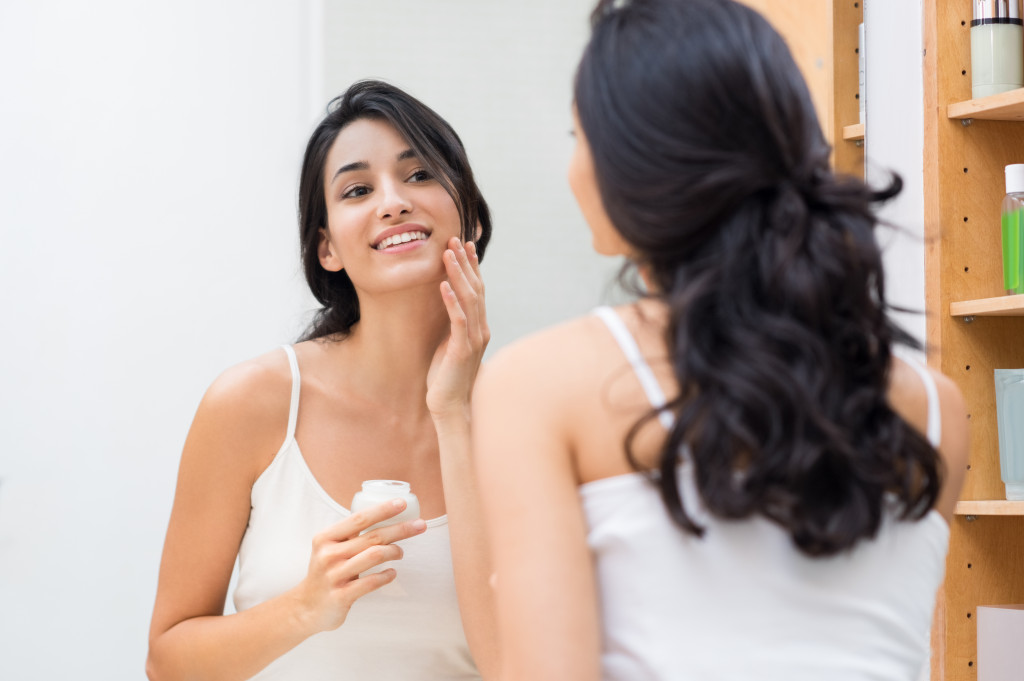The pandemic has negatively affected all of us in different ways. Psychologist Dr. Eva Ritvo said, “Our bodies are wired to look for danger… As we have been consuming news of the coronavirus, our bodies are secreting cortisol that drives our ‘fight or flight’ response.”
It’s no surprise, as what we are going through is trauma at a collective level. Whatever your response has been, whether you’ve been anxious and jumpy or sluggish and unmotivated, research says that having therapeutic hobbies can provide the right combination of mental, physical, and emotional engagement to boost one’s mood and well-being.
Here are eight healing activities or hobbies you can try to help ease your anxiety, all from the comfort and safety of your home.
Makeup and Skincare
Makeup has become one of the biggest industries in the world, with its value ballooning to $532 billion in recent years. World War II didn’t stop women from purchasing the perfect red lipstick. It’s clear that even when times are hard, women and men still find cosmetics a therapeutic way to escape and find beauty in the world.
Research suggests there are multiple benefits to fighting anxiety by creating habits and rituals. And there is nothing like doing a step-by-step full face of makeup or a ten-step skincare routine to distract us from the overwhelming flow of negative thoughts.
Arts and Crafts
Doing things with your hands can be a great way to reduce stress and negative thoughts. A study on the effects of clay work revealed greater mood enhancement and efficacy for reducing negative mood states.
Some activities that we can do with our hands include but are not limited to:
- Clay work
- Knitting or cross-stitching
- Drawing and calligraphy
- Adult coloring books
- Making rubber bead accessories
- Scrapbooking
Taking a Walk Through Nature
Horticulture therapy, or soaking in trees and other greenery, has been proven effective in easing depression, alleviating stress and anxiety, and promoting overall mental health.
With the ongoing pandemic, however, going to a crowded national park may not be the best idea, but taking a walk through your neighborhood or the nearby park can be an effective alternative. Take time out of your day for a fifteen-minute walk with your dog or loved one. Enjoy the quiet in the streets and breathe in some fresh air. A simple walk may even boost your creativity and productivity before going back to work.
Gardening or Taking Care of Plants
 Gardening and taking care of plants have also proven beneficial to mental and physical health.
Gardening and taking care of plants have also proven beneficial to mental and physical health.
If this hobby seems intimidating, start by taking care of a few succulents or cacti. If you find yourself enjoying it, and it turns out you have a green thumb, you can move on to taking care of other kinds of houseplants. Eventually, you can move on to the bigger task of gardening.
Being a plant parent will not only help improve your mental health; it can also brighten up your home.
Woodwork
Woodworking can have therapeutic and healing benefits. Many individuals have experienced uplifting and positive outcomes through woodworking, such as seeing an old piece of wood and re-purposing it into something beautiful and functional. Woodworking can provide a good distraction, offer relief, and give the hobbyist a sense of control.
Adopting a Pet
Studies show that taking care of pets can help manage one’s depression. In some cases, it’s even considered a part of treatment plans, with many therapy dogs used to provide affection, comfort, and support to people in distress, those who are differently-abled, and those suffering from various mental disorders.
Journaling
Simply writing down your thoughts and documenting your day can bring awareness about your moods and triggers. Multiple studies have shown the benefits of journaling and how it can help reduce stress, clarify your thoughts, and reflect on your feelings. Journaling is a safe and healthy way to do some meditating and self-actualization.
Cooking and Baking
Cooking therapy is also used in many rehabilitative and therapeutic settings due to its psychosocial benefits. Cooking and/or baking for ourselves and others can help build our self-esteem, provide a sense of autonomy and control, and help curb negative thoughts by focusing on following a recipe.
Don’t Be Afraid to Ask for Help
Hobbies will never be able to replace going to therapy or counseling. If you feel that your symptoms are not easing up, don’t be afraid to reach out and seek professional help.
Times are difficult, but help is available. Reach out to your family and friends, find joy in simple, everyday things, and fight for your mental health and well-being. There’s so much more we can look forward to.
